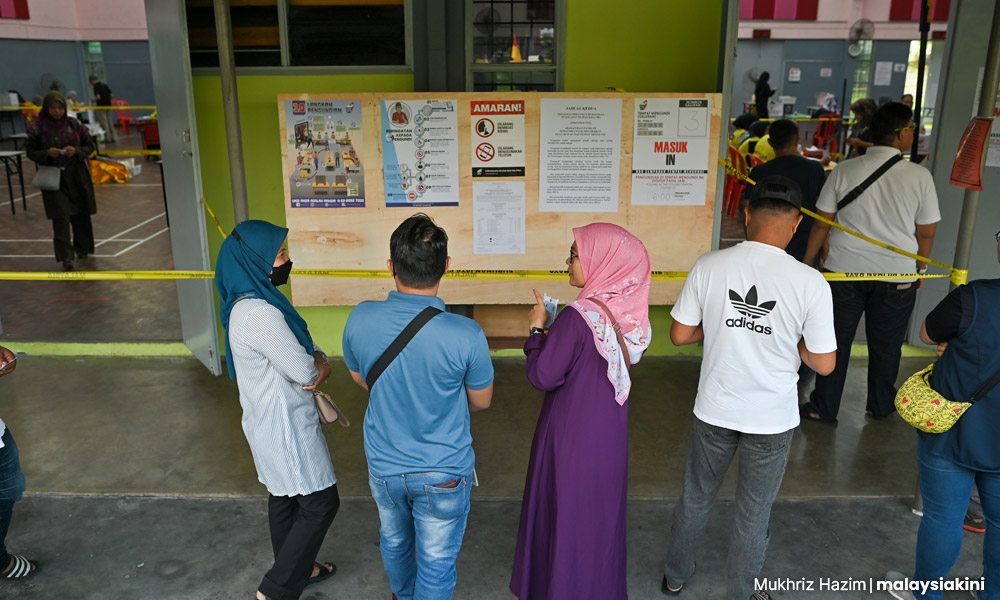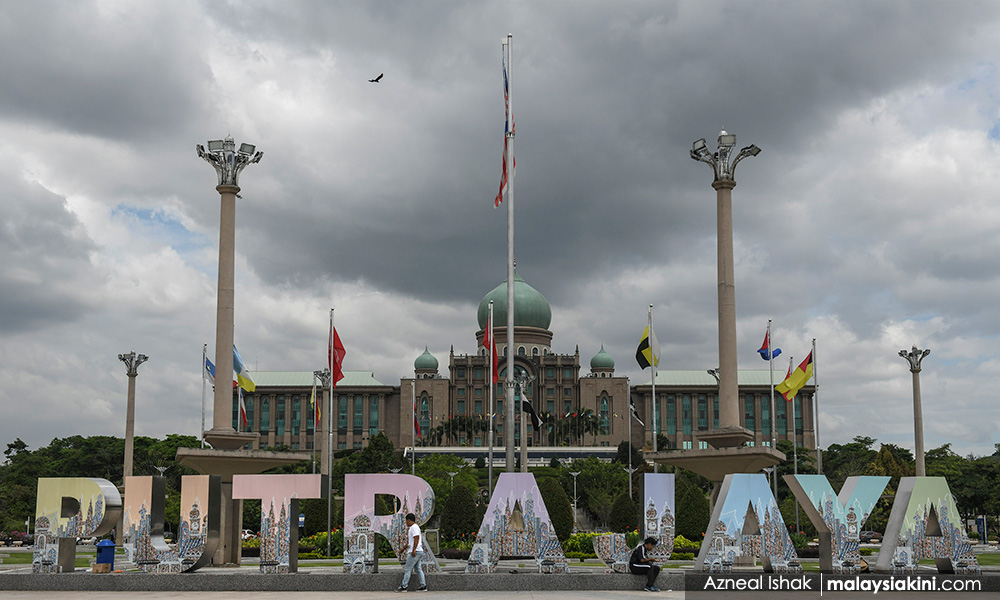If we’re waiting for other people to start doing things to fix things, there’s a high probability that nothing’s going to happen.
“Offer a competitive vision”/ “Make sure people know about services”/ “Improve political education”; these, and other well-meaning advice have been shared and reshared, then reshared frequently since 2018.
From think tanks and researchers producing long reports, to individual supporters sending impassioned voice notes to political leaders, there is no shortage of sincere proposals, to the extent of pleading for better performance.
The reader can judge for themselves if there has been progress.
As a former worker in Putrajaya in a past life, I am sceptical that mobilising government machinery is the solution to a political crisis.
To begin with, is the machinery capable of performing the roles required to recapture the hearts and minds of people across the nation from the administrative capital? Compared to rivals who are able to act nimbly and quickly in local areas to respond to new challenges.
The amount of red tape and approvals to do anything officially through the budget is, by itself, an obstacle that makes effective campaigning an uphill battle.
Perhaps things have changed since we were all booted out, and there is greater efficiency and urgency now. One should hope so.
Right time, right now
Is there really a viable alternative to a grassroots people’s movement at this point in time? There is a clear and present challenge to the idea of Malaysia as a progressive and multicultural nation, towards a firm insistence on elevating the “definitive nation” over others in all aspects of nationhood, especially politics, and government.
A good many analyses have been written to understand why that ideology has gained traction, which identifies the cultural, historical, and societal background that has brought us here.
Among others, the economic inequalities that contribute towards it must be addressed in word and deed as much as other components. At the same time, competing worldviews must draw people toward the centre, rather than bank further to the right.

It makes sense for the present government to be cautious given the results of the state elections and try to preserve its conservative credentials. That strategy may have not worked very well on Aug 12 but would leaders in Putrajaya dare lose even more conservative Malay support by reversing course?
Media: social
There is clearly a gap that needs to be filled, and it must be built by the people. A strategy of hoping that the government will act will not do, while the clock ticks on.
A movement to protect the country’s democratic forms and goals is needed, and it will require volunteers and resources in every district, town, and locality. Society is the media through which ideas need to spread through smiles, handshakes, and meaningful human interactions, not just a battery of videos that can be swiped out in less than a second.
It will require individuals and communities who believe that it's important for Malaysia to have a common framework of values and identities to get involved and contribute towards building a formidable movement.

We cannot continue debating behind screens among ourselves on what a politician should or should not do, but reach out to each other to organise, donate, and create to get our ideas out there until it becomes part of the public’s consciousness.
For a start, listen to what people are saying outside of our immediate circle of comfort.
If we can’t understand what they’re saying, they won’t be able to understand what we say when it’s our turn to speak. A progressive vision of Malaysia cannot emerge from an idealistic vacuum but has to be constructed brick-by-brick on contemporary society as its foundation.
It is a process of discovering and evaluating priorities and needs based on real conditions, rather than fuzzy descriptions of justice, equality, and progress. - Mkini
LUTFI HAKIM ARIFF is co-founder and podcaster at Waroeng Baru, a not-for-profit collective to promote democratic participation and resilience. He is also the co-author of the book ‘Parliament, Unexpected’ and an unrepentant believer in the power of local independent media. Lutfi tweets at @ltf_ha.
The views expressed here are those of the author/contributor and do not necessarily represent the views of MMKtT.




No comments:
Post a Comment
Note: Only a member of this blog may post a comment.